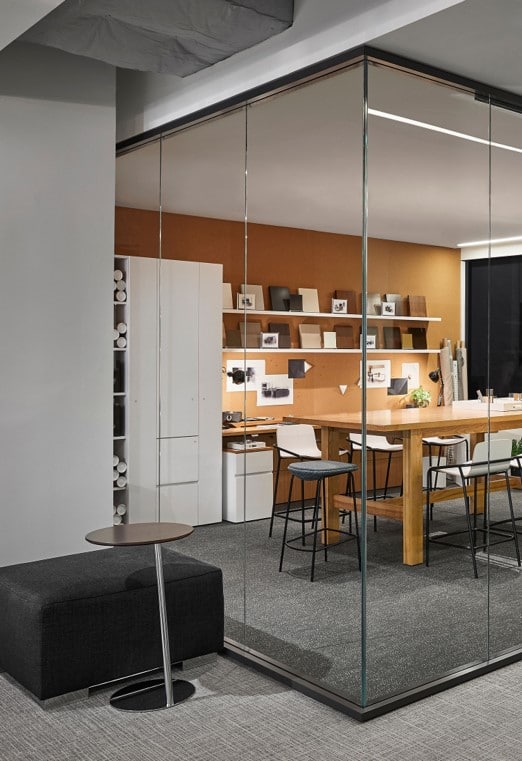 Are you an introvert in an extrovert’s world? Here are some tips to help you navigate, survive and thrive at work.
Are you an introvert in an extrovert’s world? Here are some tips to help you navigate, survive and thrive at work.
Although extroverts tend to get the lime light at work and introverts are often overlooked, introverts play a key role in business and are known to be creative and innovative. It’s a pity that they’re so misunderstood and that they’re often forced to operate in office environments designed for their more ebullient co-workers.
If you’re an introvert, you’ll probably hate working in an open plan office environment.
Open plan office designs are becoming more popular for a number of valid financial and health reasons including reducing real estate footprints, providing greater access to natural light and facilitating collaboration. However, on the downside, ambient noise levels in an open plan office can make it really difficult to concentrate. Especially for introverts.
Fending off the inevitable conversation attempts by surrounding co-workers can result in an introvert becoming increasingly stressed and their co-workers becoming increasingly convinced that the introvert is either unfriendly or socially inept.
When a co-worker stops by an introvert’s desk to admire their cute air plants or to discuss ideas for a sales presentation, their feelings are often hurt by the introvert’s curt replies and obvious desire to hurry them out of their space. But the truth is that introverts really do need quiet, private space in order to be productive and they find interruptions extremely frustrating.
 It’s not that introverts are opposed to collaboration. Or that they don’t get along with others. Introverts are often very good collaborators, bringing a sense of calm, reason and thoughtfulness to the collaborative process. Generally speaking, they also tend to get along with others pretty well and they make excellent listeners. But, when it comes to interaction with others, it needs to be on their terms and in their time. They don’t appreciate having their thought processes and work flow interrupted by someone else’s agenda.
It’s not that introverts are opposed to collaboration. Or that they don’t get along with others. Introverts are often very good collaborators, bringing a sense of calm, reason and thoughtfulness to the collaborative process. Generally speaking, they also tend to get along with others pretty well and they make excellent listeners. But, when it comes to interaction with others, it needs to be on their terms and in their time. They don’t appreciate having their thought processes and work flow interrupted by someone else’s agenda.
While co-workers rave about the new open plan office design, introverts feel overstimulated and stressed out. All they can think of is where to go to escape the buzz and get their work done.
Well, here is good news for frustrated introverts. Help is at hand. We’ve put together some practical tips to make your life easier:
The introvert’s guide to thriving in an open office plan environment
Insulate yourself with plants:
Plants will provide a seeming oasis of peace and tranquility in the an otherwise bustling, noisy environment. Just looking at them can help you focus and de-stress, recharging your psyche each time your eyes rest on them. Place potted plants strategically around your work station to a visual barrier. If you don’t have enough floor space to do this, create a space on your desk, or hang a small planter from your cubicle wall. If, for some reason, you can’t incorporate plants in your work space, mount pictures of green forests and other natural landscapes. It’s not quite as effective as living plants, but it will help to create a quiet space.
Surround yourself with pictures of people and places you love:
Your favorite color in a mug or a picture frame. Smiling faces of loved ones. Attractive desk accessories. These give you a sense of control of your environment. When an introvert feels they control their environment, they’re a lot less stressed.
Create a ‘busy signal’:
A recent article in the Huffington Post from ‘The Quiet Revolution’ suggests hanging a coat on a coat hanger next to your workspace to create a personal, visual barrier providing a little privacy from adjacent co-workers. Explain to your co-workers they see your ‘busy signal’ they know that you’re not available to participate in conversation whether it’s social or business related. Let them know you’d love to chat as soon as you are available. Then remember to remove your signal a few times a day so that they know you’re not just rebuffing them.
Block your ears:
Wearing headphones is another way of giving a ‘busy signal’ and they have the added advantage that they’ll also help block out ambient noise allowing you to work in relative quiet.
Flexible work schedule:
If possible, come in to work earlier or work later so that you’re able to take advantage of quiet times when the majority of your co-workers are not in the office. Change your lunch hour so that you’re working when others are at lunch and visa versa.
Meet with yourself:
If you have private conference or meeting rooms, why not consider booking these for a ‘meeting with yourself’ when they are not in use. Taking advantage of this quiet space when you have a particularly thought intensive task or when the open plan environment becomes too much can be an easy fix. Even relocating to a small space that’s generally set aside for semi-private collaborations such as MindShare from Allsteel can help create a little privacy and dampen ambient noise enough for you to enjoy some quality concentration time when you really need to get work done without interruptions.
Set-up quiet zones
If your organization has designed an open plan office without quiet zones, show them this article which gives suggestions about how to set these up. It can be as simple as the arrangement of work stations facing away from each other rather than toward each other, or as elaborate as specific ’noisy’ and ‘quiet’ areas set apart from each other.
Take time to recharge alone
Take short breaks throughout the day to spend a little alone time. Find a place that’s easily accessible so that you can escape the buzz quickly and return just as quickly. Short breathers will help you handle the busyness of the office and avoid feeling over stressed by the end of the day.
Related information:
Understanding Introverts and Extroverts:
https://www.insidesource.com/blog/introverts-in-an-extrovert-open-plan-office/
https://www.insidesource.com/blog/3-reasons-why-even-extroverts-need-privacy-at-work/
https://www.insidesource.com/blog/be-more-productive-get-some-plants-on-your-desk/
https://www.insidesource.com/blog/office-design-tips-to-make-you-more-productive/


 Are you an introvert in an extrovert’s world? Here are some tips to help you navigate, survive and thrive at
Are you an introvert in an extrovert’s world? Here are some tips to help you navigate, survive and thrive at 

